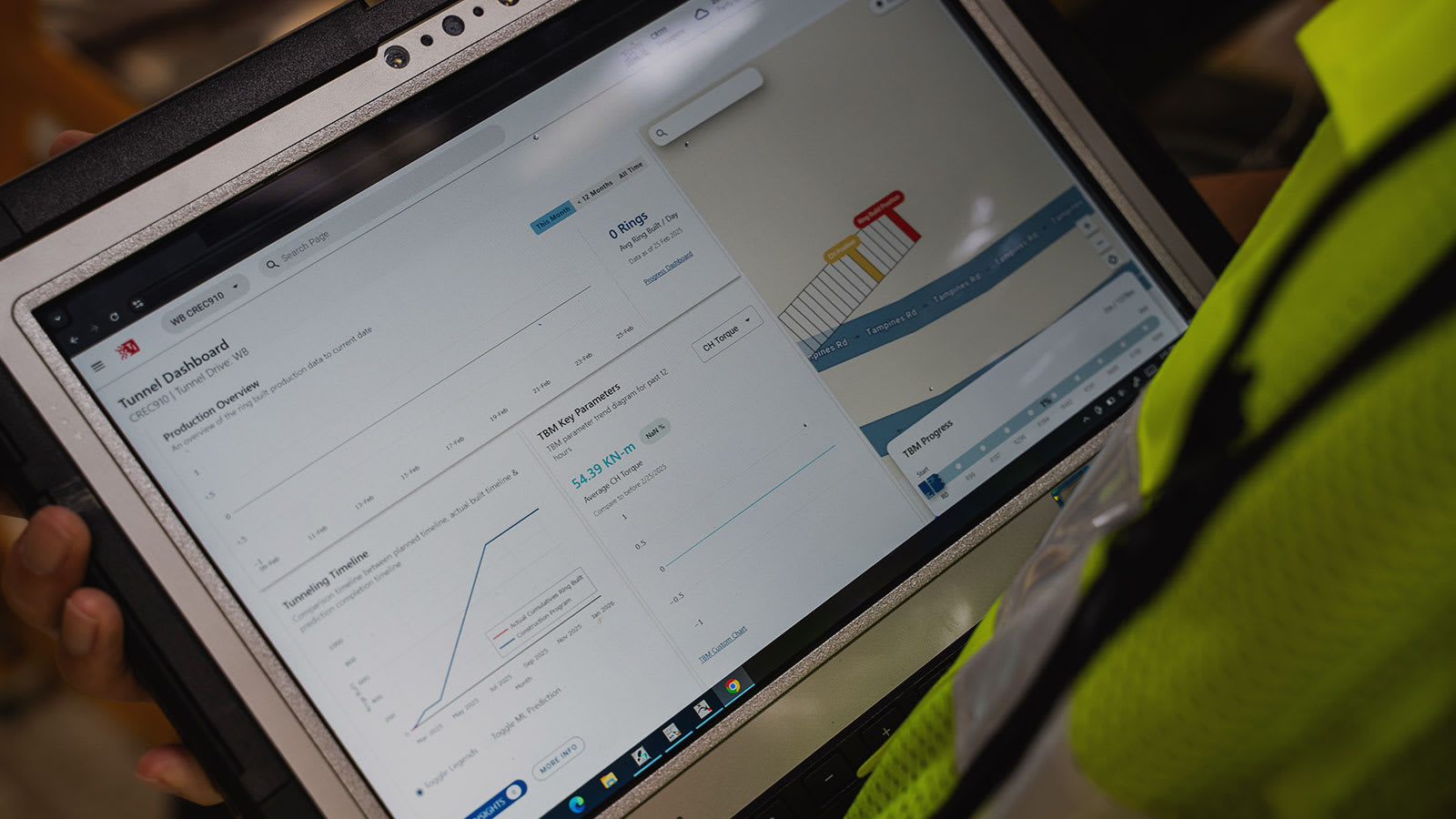It was in 2019, while construction of the MRT Putrajaya Line in Malaysia was underway, that Malaysia-based Gamuda introduced the world’s first autonomous tunnel boring machine (TBM) software. Drawing on internal expertise and a dedicated in-house team, Gamuda developed a plug-and-play artificial intelligence (AI) system that operates the machine with minimal human input. Today, Gamuda’s TBMs — ingrained with its proprietary autonomous software — are exported across the world, enhancing tunnelling operations for projects in countries such as Australia and Singapore.
At the time, industry observers questioned whether a construction company could succeed at this as well as specialist tech firms. But this breakthrough did not happen overnight. Founded in 1976, Gamuda was already a regional leader in infrastructure development. Award-winning projects under its belt include Kuala Lumpur’s Stormwater Management and Road Tunnel (SMART), the world’s first dual-purpose stormwater diversion and motorway tunnel, as well as rail metro systems in Malaysia and Taiwan.
Building on decades of tunnelling expertise, the company set out to advance underground construction technology. What began with its innovative Variable Density TBM, which improved tunnelling capabilities in challenging geological conditions, evolved into the autonomous TBM. Gamuda has since gone from strength to strength — establishing an Innovation Hub, launching an AI Academy in collaboration with Google Cloud to train future-ready talent, and developing the Gamuda Digital Operating System (GDOS) in partnership with Autodesk Construction Cloud to streamline project management.
“People find it strange that a construction company has its own software engineers, is winning awards with technology and even launched a new tech business,” said Mr John Lim Ji Xiong, group chief digital officer of Gamuda, who conceived its Innovation Hub. “But if we can succeed with technology, it is proof that every company — with the right culture and people — can transform from the inside.”
A BOLD PIVOT
A Gamuda Scholarship recipient, Mr Lim has grown alongside the company and his career journey reflects its success story. His first job after graduation was as a tunnel engineer with Gamuda in 2017. On his first project, his team was tasked with launching the initial TBMs on the MRT Putrajaya Line. Just two years later, driven by their combined expertise and a passion for coding, the team pioneered a new tunnelling method.
The autonomous TBM represents a significant step forward in underground construction technology. It incorporates advanced AI systems, real-time data analytics and automated decision-making capabilities, dramatically enhancing safety, efficiency and precision. It has won worldwide recognition, including the Innovation in Tunnel Excavation Award at the New Civil Engineer Tunnelling Awards 2019, and Technical Product/Equipment Innovation of the Year at the International Tunnelling and Underground Space Association Tunnelling Awards 2019.

Another breakthrough came when the team built a new web application, Tunnel Insight, which provides real-time data feeds from the autonomous TBMs and consolidates all tunnelling data into a single, user-friendly platform. It enables site teams to make informed decisions quickly and efficiently, and optimise project management, such as how to reduce machine downtime or improve safety performance.
Tunnel Insight 1.0, which focused on data visualisation and automated diagnostics, was first used in 2019 in the construction of the MRT Putrajaya Line in Malaysia. Since then, newer iterations have been developed by an expanded team of in-house engineers. Tunnel Insight 2.0 and Tunnel Insight 3.0, launched in 2022 and 2023, respectively, contain updates to enhance the user experience and have been deployed in tunnelling projects in other countries.
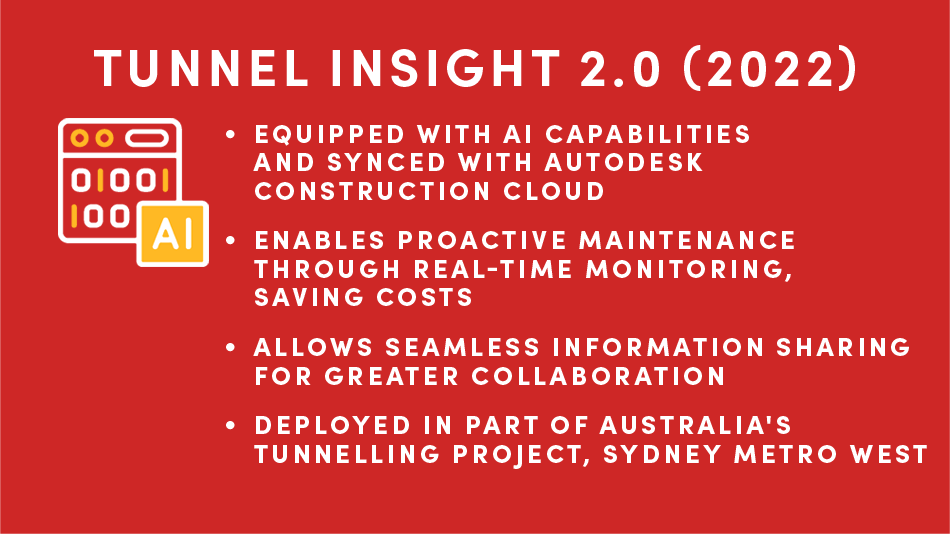
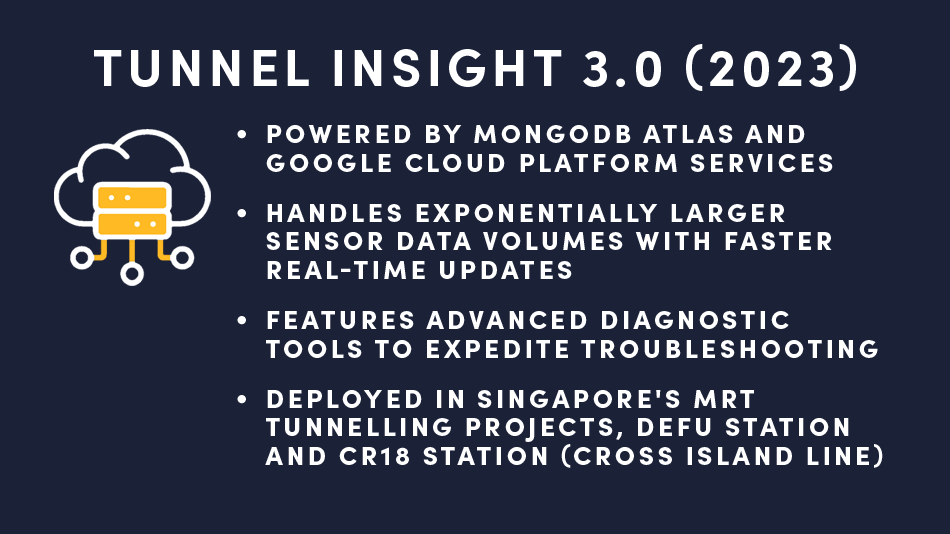
As Gamuda’s projects have grown beyond tunnelling, its innovations are now also integrated across the company through the GDOS. This digital ecosystem helps break down organisational silos, fostering greater collaboration and data collection among teams. Recent industry accolades, including awards by the International Data Corporation (IDC) and Autodesk in 2024, acknowledge Gamuda’s evolution from a construction firm to a technology-enabled innovator.
BREAKING GROUND IN SINGAPORE, AND BEYOND
Singapore is already reaping the benefits of Gamuda’s expertise. Tunnel Insight 3.0 is being implemented in two projects for the MRT Cross Island Line (CRL) — Defu Station and Tunnels, part of CRL Phase 1 (scheduled for completion in 2030); and CR18 Station and Tunnels, part of CRL Phase 2 (scheduled for completion in 2032). Powered by MongoDB’s robust database architecture and Google Cloud’s enterprise-grade infrastructure and platform services, this solution is substantially enhanced with new features, providing tunnellers with better insights to make more informed decisions.
Not only does Tunnel Insight 3.0 unify diverse data sources using automation and machine learning, but it can also handle massive volumes of sensor data, deliver real-time updates, compress data to save bandwidth and costs, and expedite troubleshooting support. With an optimised technology stack (TypeScript, Golang, MongoDB and Nuxt 3), it offers better web performance, a more responsive user interface, faster bug resolution times and seamless integration into standard operating workflows. These improvements have boosted adoption rates, helping the CRL project team achieve greater operational efficiency and effectiveness.
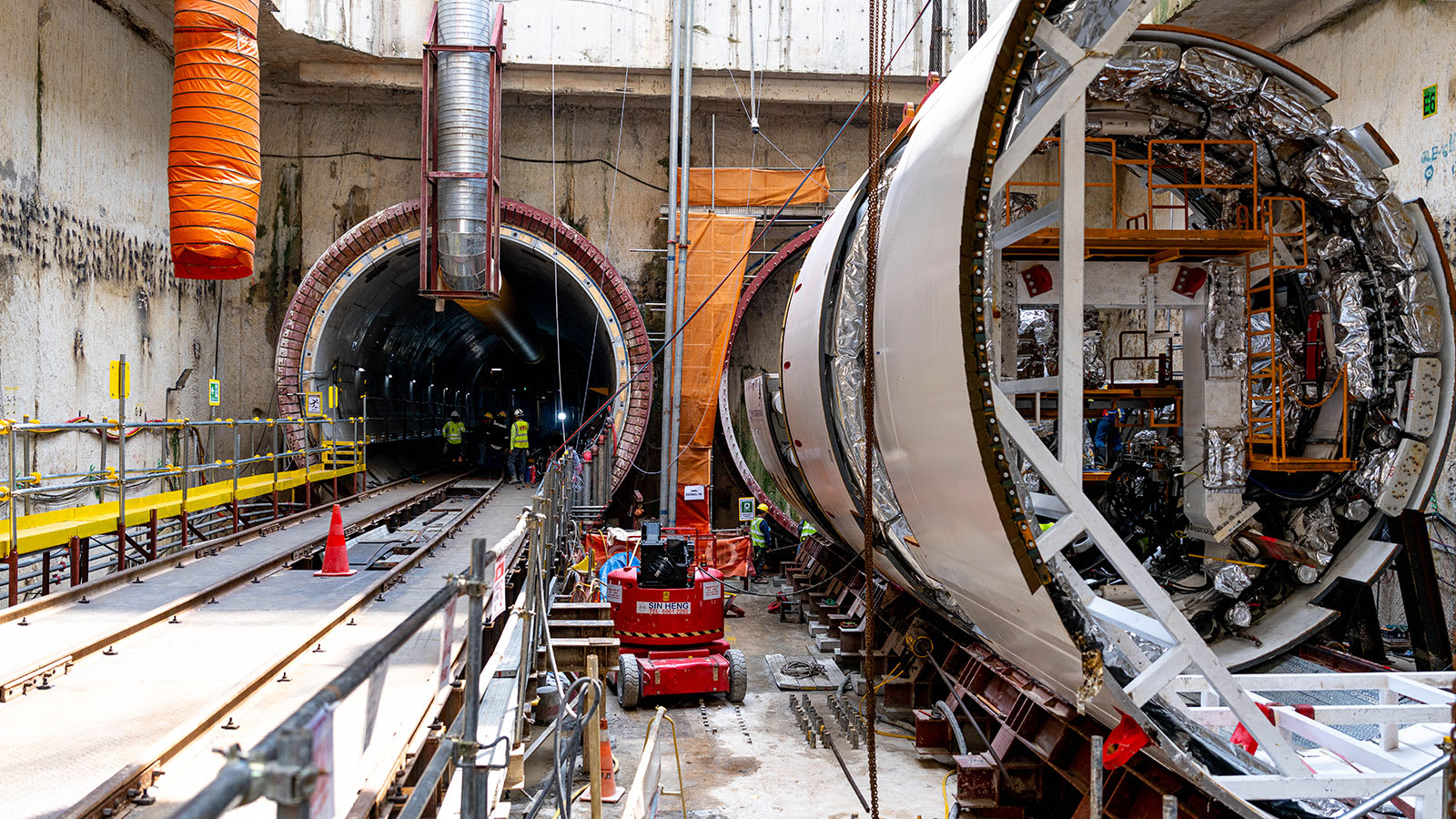
Apart from these MRT projects, Gamuda plays an instrumental role in the construction of the Gali Batu Multi-Storey Bus Depot. This is the largest electric vehicle-ready public transport facility in Singapore, with parking spaces for 715 buses and charging stations to support more than 200 electric buses. Gamuda has also ventured into Singapore’s real estate market, with two completed properties in Toa Payoh (GEM Residences) and Mountbatten (OLÁ), as well as a recently-secured land parcel in Chencharu Close earmarked for mixed-use development.
Other construction projects in the company’s portfolio run the gamut, from infrastructure and public transport to renewable energy and building refurbishment, within Asia and further afield.
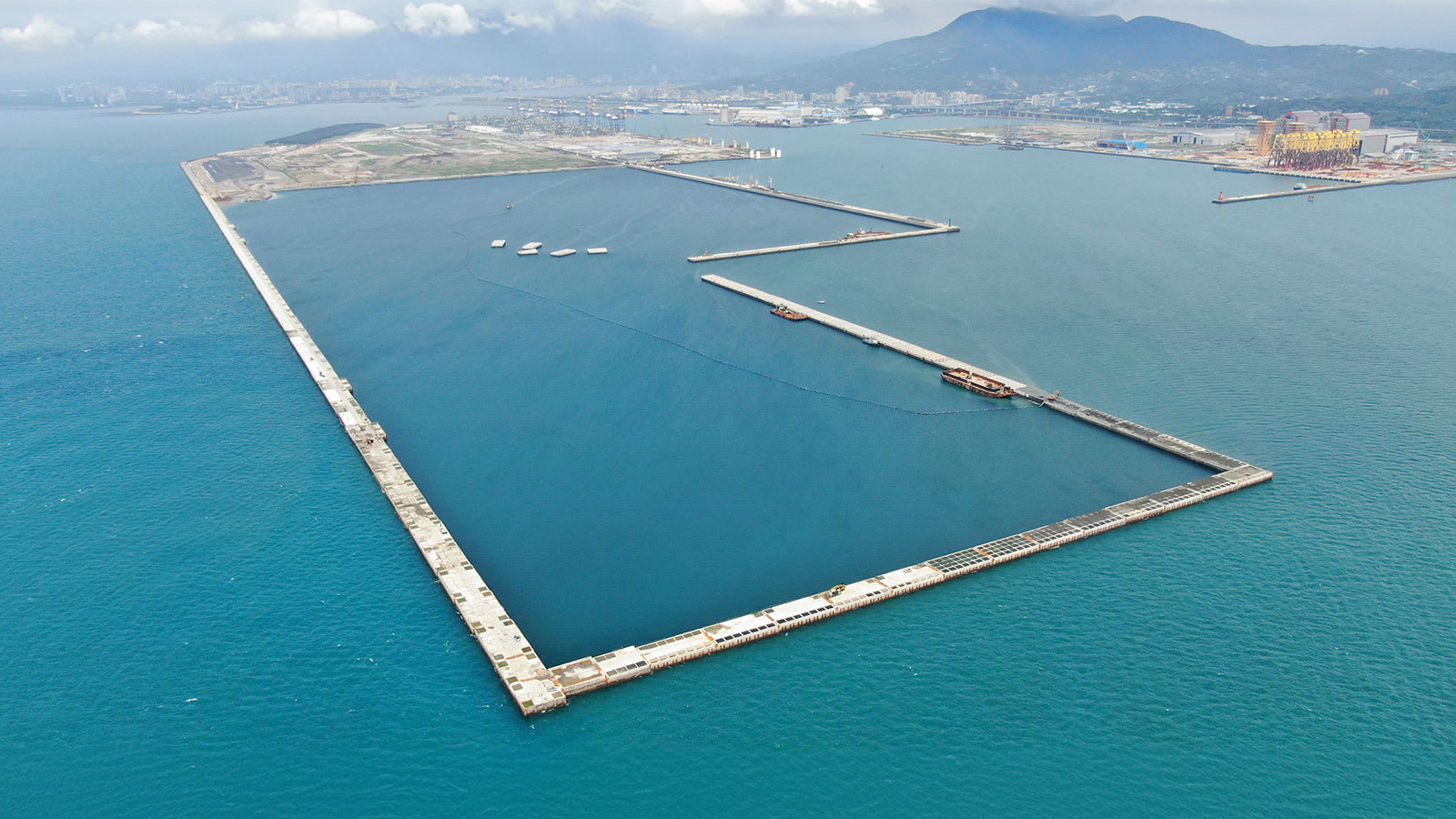
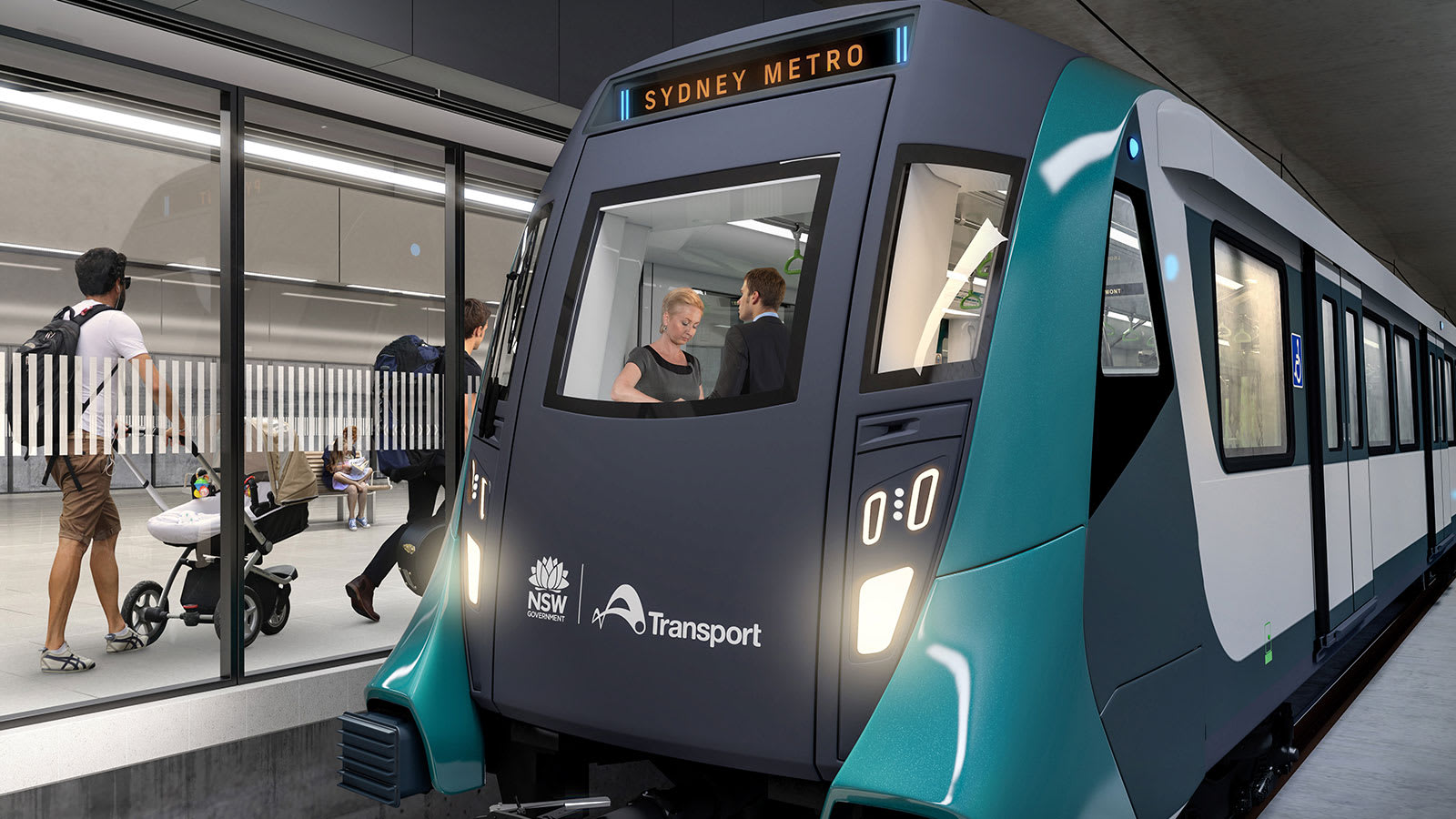


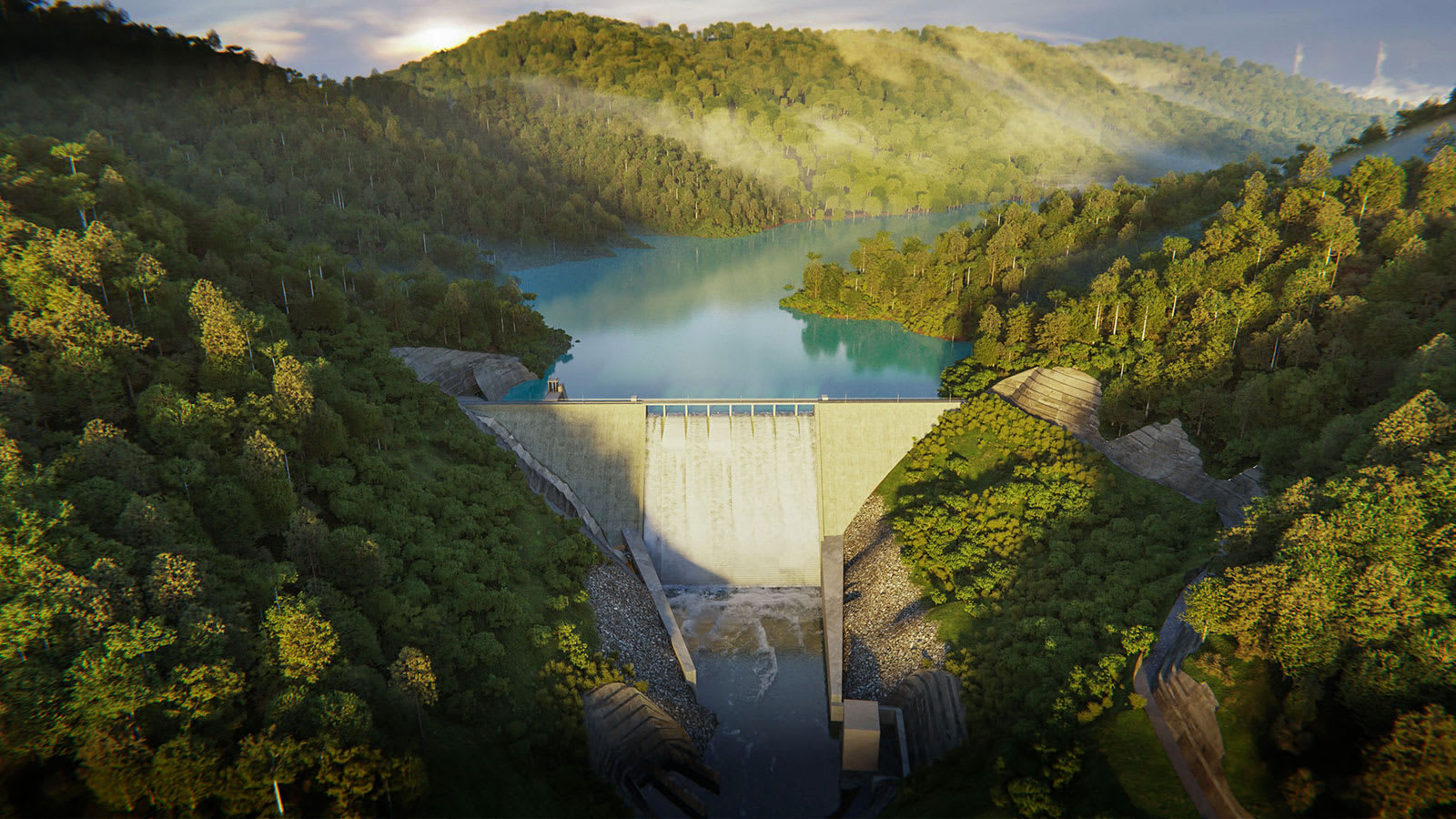
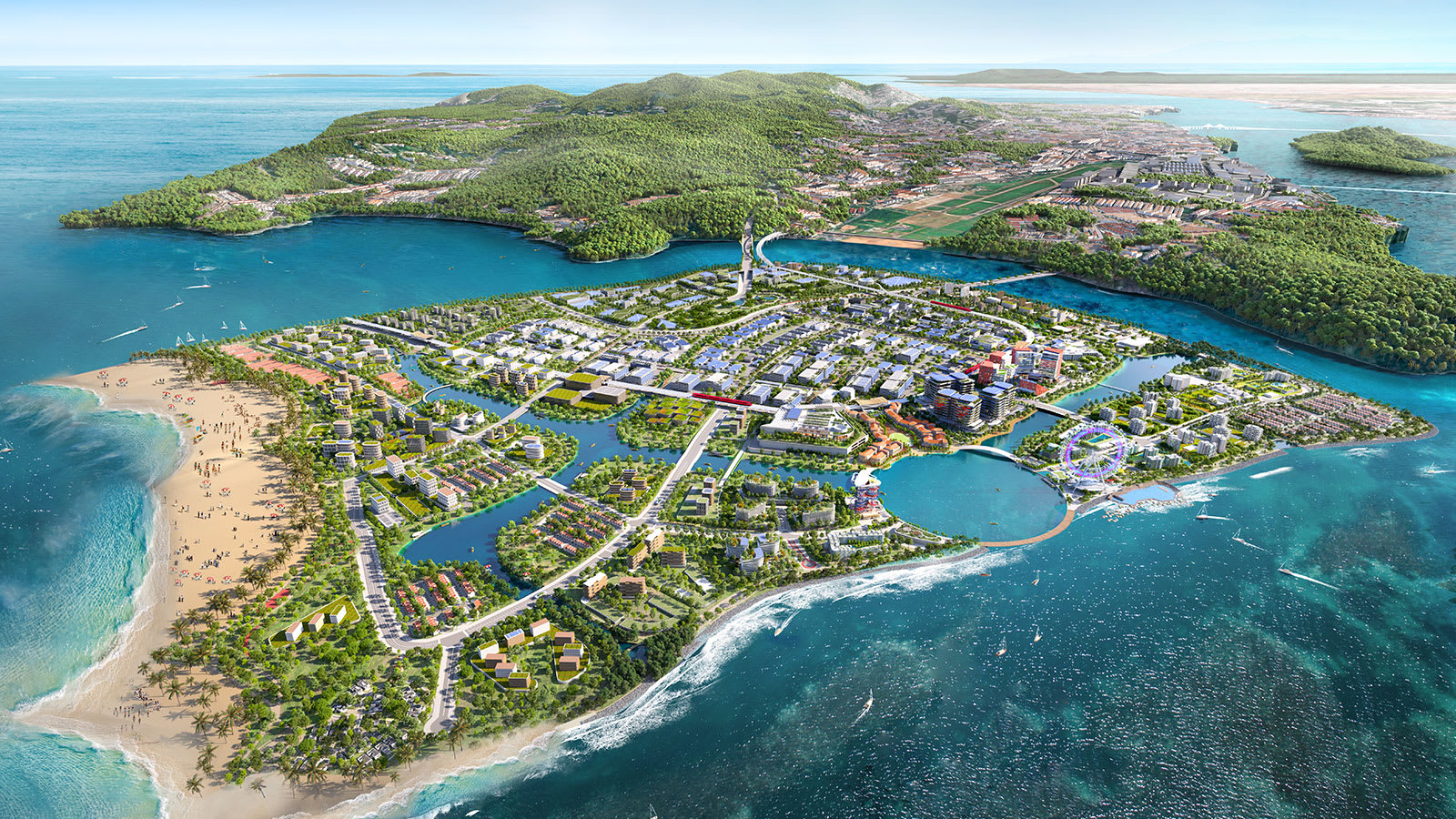






All this digital transformation has not gone unnoticed. At the IDC Future Enterprise Awards 2024, Gamuda won three awards, two of which were specifically for its Tunnel Insight software:
- Future Enterprise of the Year (Malaysia) – for the Gamuda Excellence Transformation (GET) programme
- Special Award for Digital Innovation (Malaysia) – for the Gamuda Tunnel Insight platform
- Special Award for Digital Innovation (Asia/Pacific) – for Tunnel Insight’s far-reaching impact across the region
Along the way, many Gamudians (as its employees are called) have followed Mr Lim’s lead and upskilled into higher-value, in-demand roles such as AI engineers. The Gamuda Innovation Hub provides a platform to incubate talent. This further accelerates the digitalisation of construction processes, adoption of cutting-edge technologies, cross-disciplinary collaboration and workforce development.
THE NEXT FRONTIER: AIR-GAPPED SOVEREIGN CLOUD IN A BOX
One of the company’s latest initiatives is Gamuda DNeX Cloud, a joint venture (JV) formed in 2024 between Gamuda Technologies (its digital and technology arm) and Dagang NeXchange (a Malaysian IT and e-services provider). The JV aims to collaborate with like-minded partners — not just those in construction, but especially those managing sensitive data — on board the AI and cloud revolution.
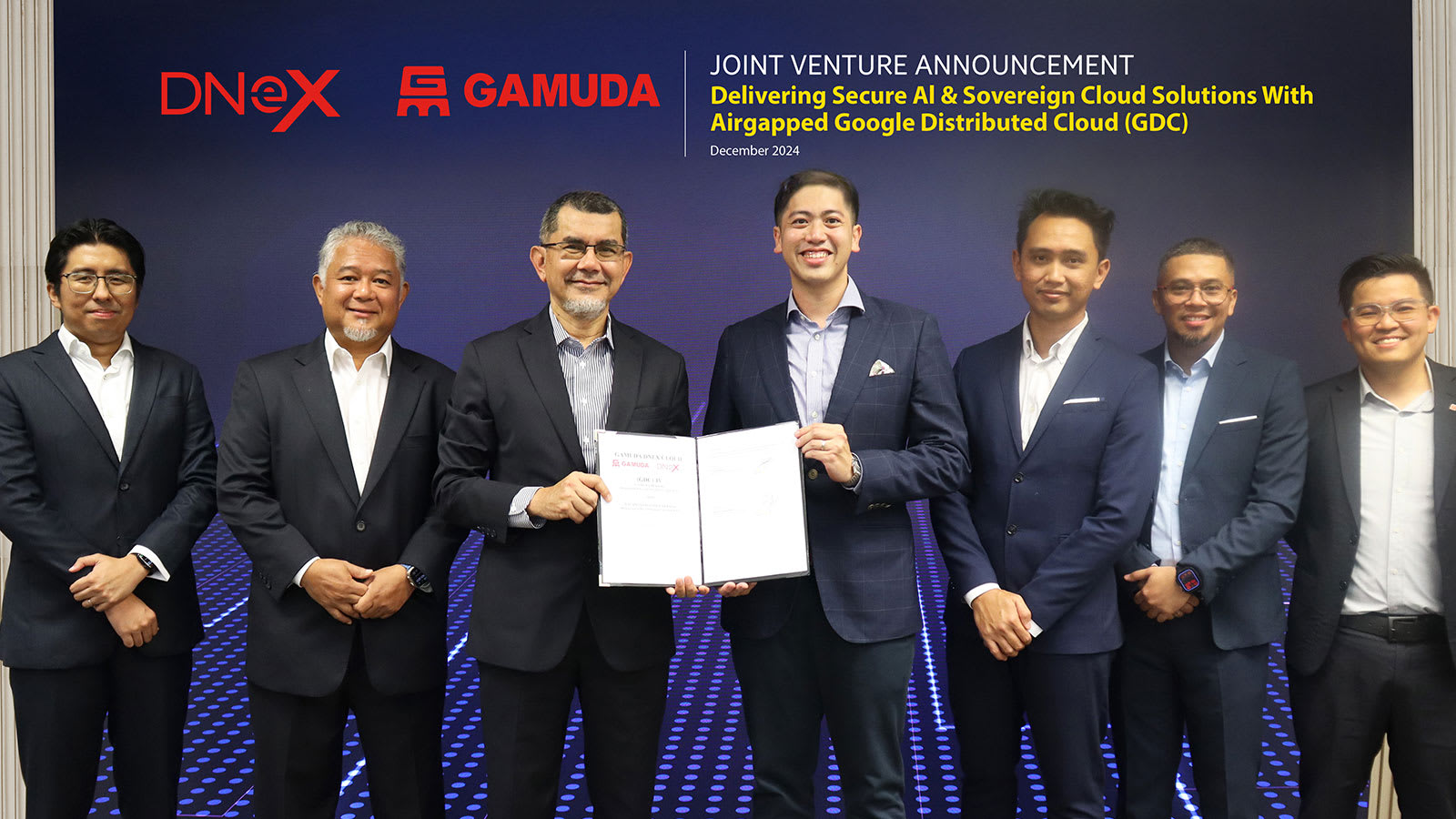
Gamuda DNeX Cloud is currently the only authorised provider (i.e. Managed Google Distributed Cloud Provider) of Google Distributed Cloud (GDC) air-gapped solutions in Malaysia. It offers a highly secure, fully isolated, on-premises environment for customers to innovate with Google Cloud’s integrated AI technology stack. This addresses digital sovereignty needs and stringent regulatory requirements faced by certain federal and state agencies in the Malaysian government, as well as private entities in regulated sectors.
“We are a local party with a strong, proven technology, a great support system and an innovative ecosystem behind us to deliver the best capabilities to our customers,” said Mr Lim. Public- and private-sector partners based in Malaysia can tap into the JV for a comprehensive suite of services, including procuring GDC hardware, right-sizing workloads and customising AI solutions, in addition to application development, ongoing client support, data migration and infra maintenance.
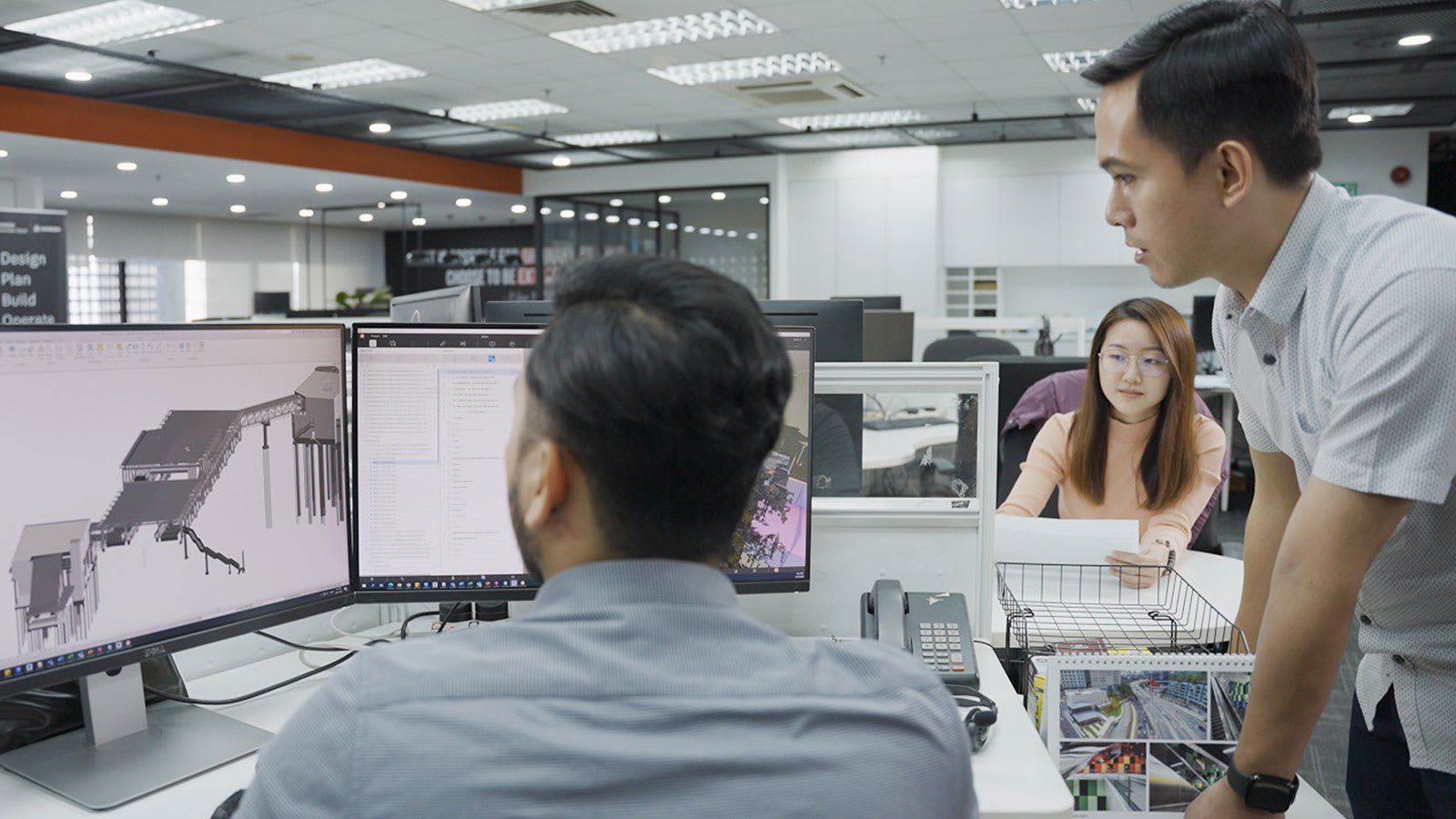
That this whirlwind of changes, beginning with the development of the autonomous TBM software, has happened in just six years can be hard for some to fathom. “Eight years ago, if I had brought up big data and AI, I think people would have baulked and said, ‘You are a construction company. What are you talking about?’” admitted Mr Lim.
But for the group chief digital officer, it is simply the next step in the company’s storied transformation spanning five decades (and counting). “Given our history, the last 10 years of innovation and our digital journey did not emerge out of nowhere. Our vision has always been to lead the region in innovative breakthrough solutions.”











